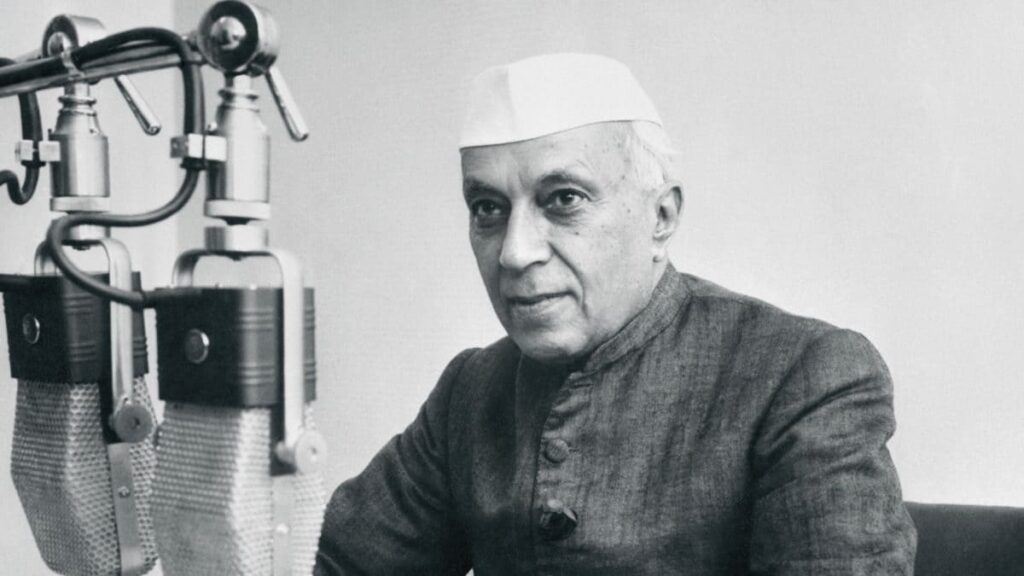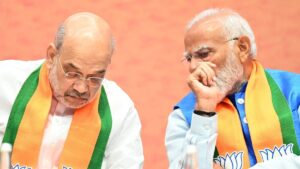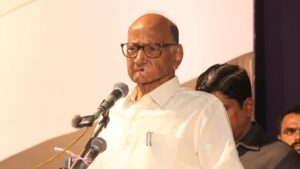Is Rahul Gandhi Following in Jawaharlal Nehru’s Footsteps? How India’s First PM Betrayed, Insulted Sikhs

Last Updated:
Nehru also disregarded the issues of migrant Sikhs in UK, once again snubbing the community and its needs. (Getty)
The Congress has a long history of demeaning Sikhs and the roots can be traced right back to Nehru under whose prime ministership Article 35A and Article 370 were introduced
Leader of Opposition Rahul Gandhi’s comments on Sikhs during his US visit are the latest in a series of insults hurled at the community by the Grand Old Party, starting from the times of India’s first prime minister Jawaharlal Nehru.
Gandhi stirred a political storm this week when he cited the example of Sikhs to comment on the state of religious freedom in India, provoking a reaction from the BJP which accused him of setting a “dangerous narrative” on foreign soil.
Addressing the members of the Indian diaspora in Virginia, Gandhi said the fight in India is about whether a person, as a Sikh, is going to be allowed to wear a turban in India and would be able to visit a Gurdwara.
What made matters worse for the Congress leader was the endorsement he received from Khalistani sympathiser and designated terrorist Gurpatwant Singh Pannun who said Gandhi’s statement is “not only bold and pioneering but is also firmly grounded in the factual history”.
The Congress has a long history of demeaning Sikhs and the roots can be traced right back to Nehru under whose prime ministership Article 35A and Article 370 were introduced.
Sources said many Sikhs from Mirpur were forced to flee to Jammu and Kashmir after Pakistani tribals massacred them and abducted and raped their women. The remaining Sikhs settled in Jammu, Kathua, Rajouri, Poonch, and Udhampur. Article 35A of the Constitution allowed the legislature of PoK to define the state’s “permanent residents” and the Sikhs who migrated since 1947 were never given this permanent residential status until the revocation of Article 370 by the Narendra Modi government.
Further, in a speech in Patiala on January 4, 1952, Nehru said the formation of the province of Punjab would result in the nation’s division. It was also argued that the demand lacked majority support and Punjabi was not grammatically very distinct from Hindi. Later on, the Congress went on to divide the country on the basis of language, beginning with Andhra Pradesh. If the division of states was done on linguistic basis, the then government should also have thought about the situation in Punjab before finally granting it statehood.
The 1955 Durbar Sahib Attack was also viewed as an affront to Sikhs, the sources added. The police action at Golden Temple, carried out by the police of united Punjab on the intervening night of July 3 and 4, 1955, is considered to be the security forces’ first action on the shrine in free India. The 1955 action was launched to contain the activists of Shiromani Akali Dal during the Punjabi Suba Movement.
On August 15, 1960, 150 Sikhs were arrested as they had released scores of balloons to demand a separate state of Punjab while Nehru was addressing the nation on Independence Day.
Nehru also disregarded the issues of migrant Sikhs in UK, once again snubbing the community and its needs.
According to an excerpt from The Kaoboys of R&AW: Down Memory Lane by B Raman: “In the UK, many of the affected Sikhs took up the matter with the Indian High Commission in London and sought its intervention. The High Commission declined to intervene and advised the Sikhs to approach the local authorities for a redressal of their grievances. Jawaharlal Nehru, who was India’s Prime Minister at that time, followed a hands-off policy with regard to the migrants of Indian origin living abroad. He was against the Government of India intervening on their behalf with their host governments. They were told that they should sort out matters themselves by taking up their problems with the local authorities.”
Thus, sources say, the Sikh community had plenty of reasons to feel betrayed by the Congress under Nehru who made promises to them but never saw then through.



